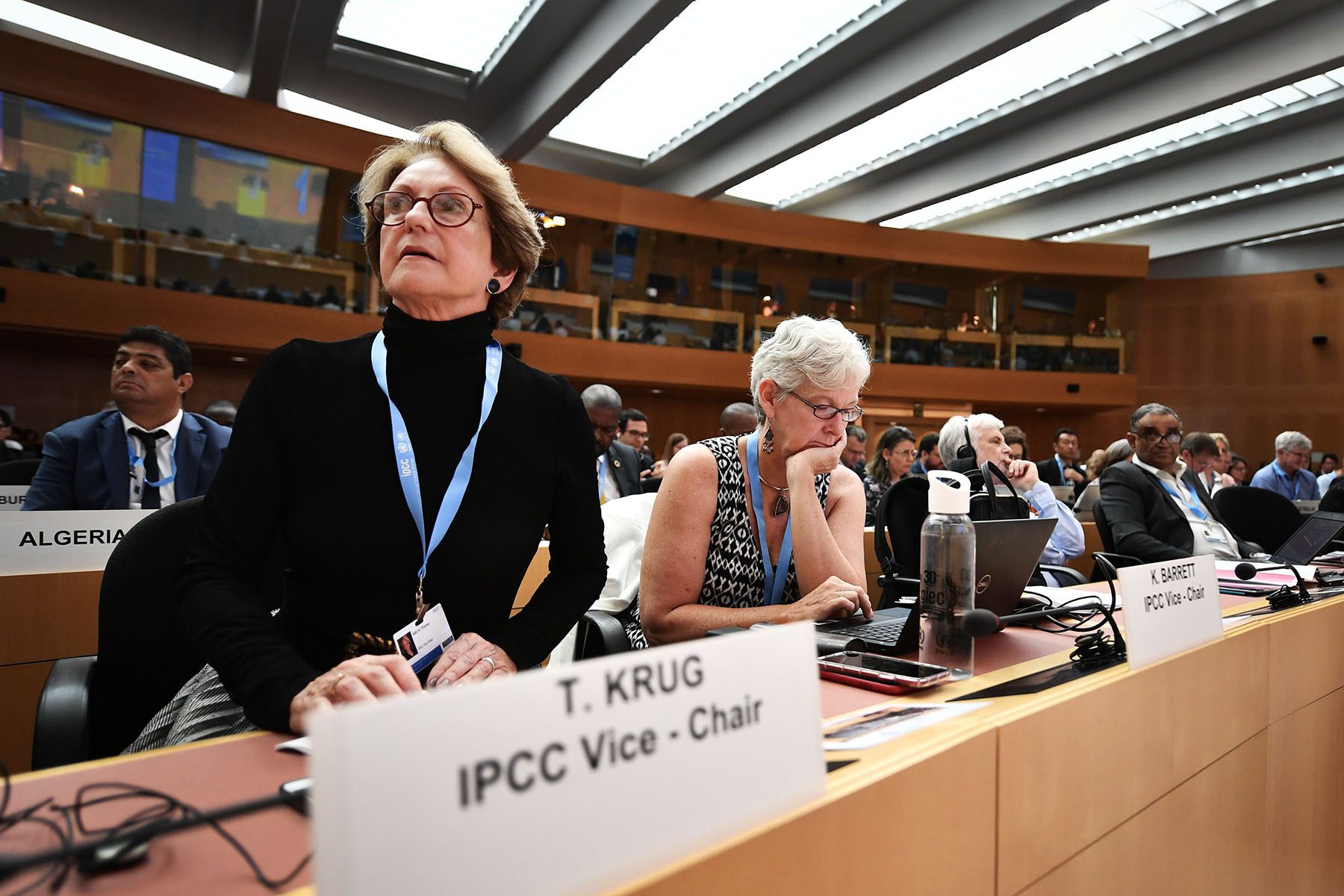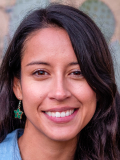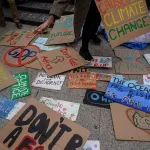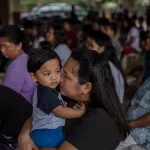Over the next two weeks, the United Nations’ Intergovernmental Panel on Climate Change will convene to finalize the second installment of its most recent report, which covers climate impacts, adaptations and vulnerabilities.
The virtual gathering will include the largest number of women authors to date, according to survey results published in the journal Nature in February. The increase in women IPCC authors is a promising sign that recent efforts to bring gender parity to one of the foremost authorities on climate change are working.
“Things are changing,” said Miriam Gay-Antaki, one of the survey authors. “People are realizing that attending to gender is not a nuisance but something that a lot of people actually want.”
The IPCC was formed in 1988 as a way to inform policymakers on the latest climate change science and its impacts. Currently, 195 countries are members of the international body. Hundreds of scientists author the assessments, which are released every six to seven years and split into three parts. The IPCC is now meeting to finalize the second installment of the Sixth Assessment Report, which is due out February 28.
When the first assessment was created in 1990 to address climate change, just 8 percent of the authors were women. In the sixth report, that number is now up to 33 percent (and 40 percent for the working group responsible for this second installment).
But still, gender bias remains a barrier to participation. The survey, which was conducted by the IPCC’s task group on gender in 2019 and sent to over 1,500 contributors to the IPCC, showed that more than a third of respondents felt that men authors often dominated discussions in their working groups. Additionally, 38 percent of women respondents reported that they had seen someone else take credit for a woman’s idea. Fifty-two percent of women reported seeing a woman being ignored, and 41 percent reported seeing a woman colleague being patronized. Nearly twice as many women as men reported that child care responsibilities made it difficult to participate.
Gay-Antaki pointed out that addressing the exclusion of women opens up the door to thinking about other types of exclusion, too: “People are beginning to talk about bias and internalized bias and questioning their positions and their beliefs.”
While the survey did not ask specifically about sexuality, some respondents noted the need for ally training for those working with LGBTQ+ people and a place to report discrimination. The survey also pointed to intersectional barriers including race, nationality or whether the person spoke English well, which also impacted scientists’ ability to participate.
Apart from bias within the IPCC, the very process of getting nominated as an author, a prestigious professional undertaking, has favored men.
“The biggest barrier is that in many countries, it’s the country that has to nominate you,” said Diana Liverman, an author on previous IPCC assessments and survey author. “Every country’s got scientific hierarchies, including the U.S. But the scientific hierarchies were dominated by men. … You would see people being nominated because they were in the old boy’s network,” she said.
In response to the survey, the panel has created a Gender Policy and Implementation Plan to enhance gender equality and create an environment in which people who shoulder child care responsibilities can better participate, among other initiatives to make the work more inclusive.
-
More from The 19th
- The problem with how children in the U.S. are learning about climate change
- ‘You leave everything behind’: As bases end housing, Afghan women detail life as refugees in the United States
- More Black women are leading U.S. law schools and changing the conversation on race and gender
The makeup of the IPCC is just one example of gender bias in climate sciences. The Anthropocene Working Group, an interdisciplinary group of researchers and scientists caught flack in 2014 when an op-ed in the Guardian titled “Must the Anthropocene be a Manthropocene?” pointed out that at the onset just one of the 29 members of the group was a woman. Liverman too has addressed the lack of representation in the climate sciences, helping create the Women in Climate Change Wikipedia page. She also encourages women scientists to nominate themselves for IPCC authorship.
More broadly speaking, the biggest barriers to participate in climate science is its exclusivity: Its structures are Western, White and masculine, Gay-Antaki said.
The same is true for academia, said Melissa Burt, who is both an assistant professor in atmospheric science and assistant dean for diversity and inclusion at Colorado State University. “If you think about academia, it wasn’t actually created for women or people of color, it was created for White men,” Burt said. “Oftentimes, we’re trying to fit into the mold, to make it for us.”
In her work, she aims to make people from all backgrounds feel more comfortable in that setting. “I’m trying to really understand who we all are, and allow ourselves to bring our full selves into the work that we do.” That greater inclusion leads to better science and decision-making, but also “it’s the ethical and moral thing to do,” said Burt.
While the number of women graduating in the geosciences is increasing, representation for women of color is still sparse: They made up just 1.5 percent of doctorates in the field awarded in the United States over a 40-year period ending in 2016, according to a 2018 study.
Gay-Antaki thinks that climate science is uniquely positioned to benefit from better participation across identities.
“One of the things about climate change science that is different, or gives us more hope than other sciences, is that it really does require understanding different perspectives,” she said. “All of our social positioning will really mark and really inform what we can know and learn about this world.”







